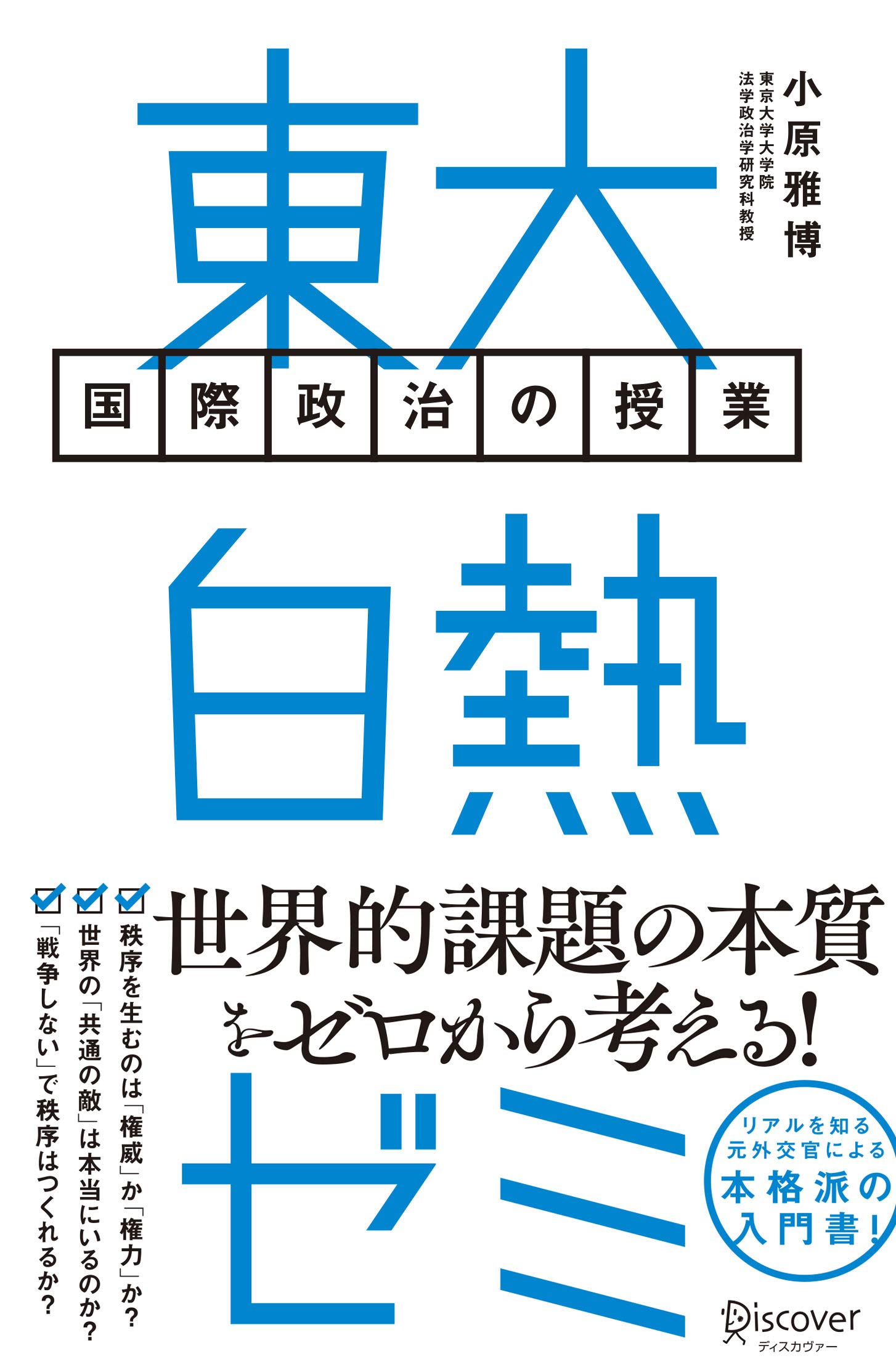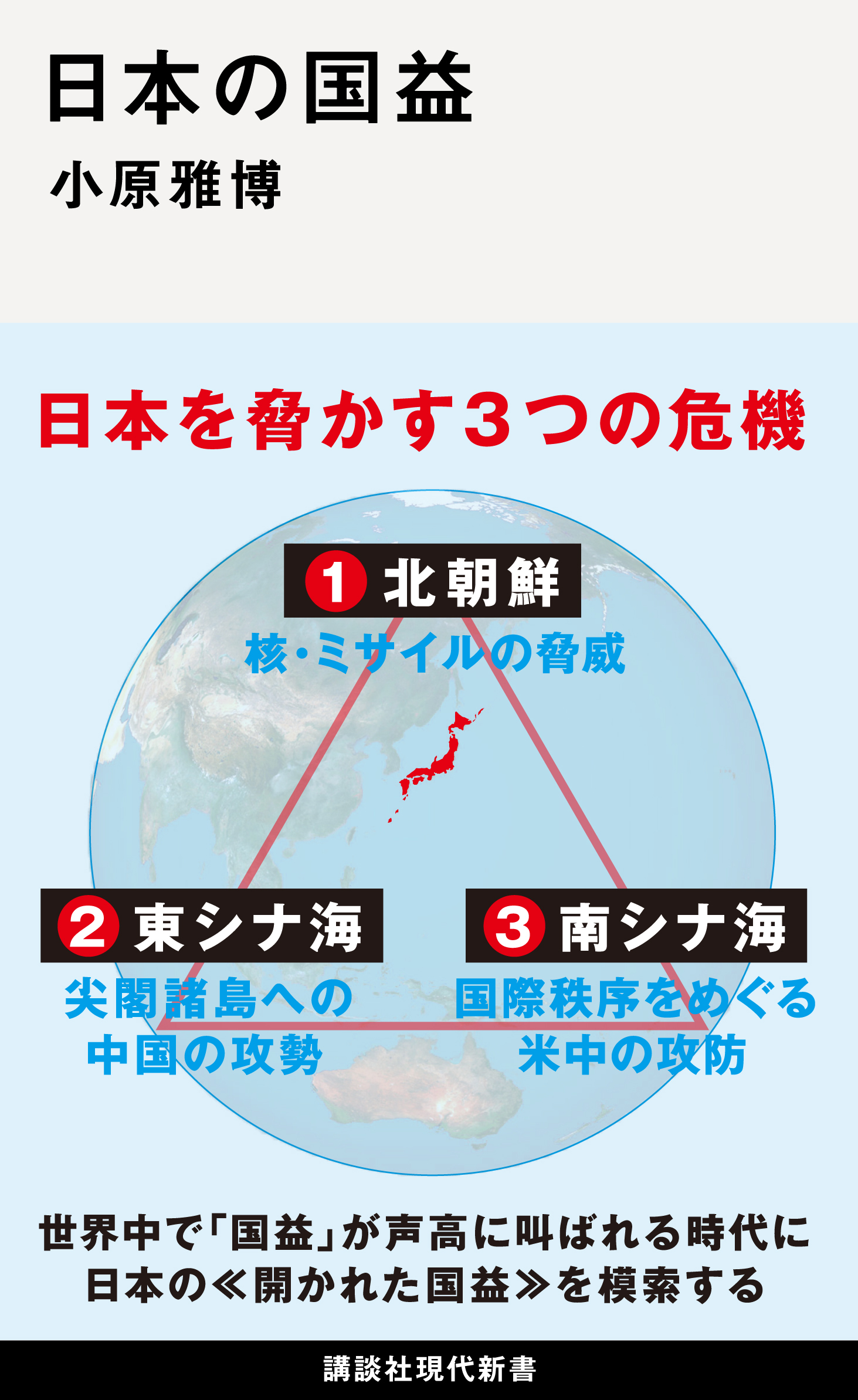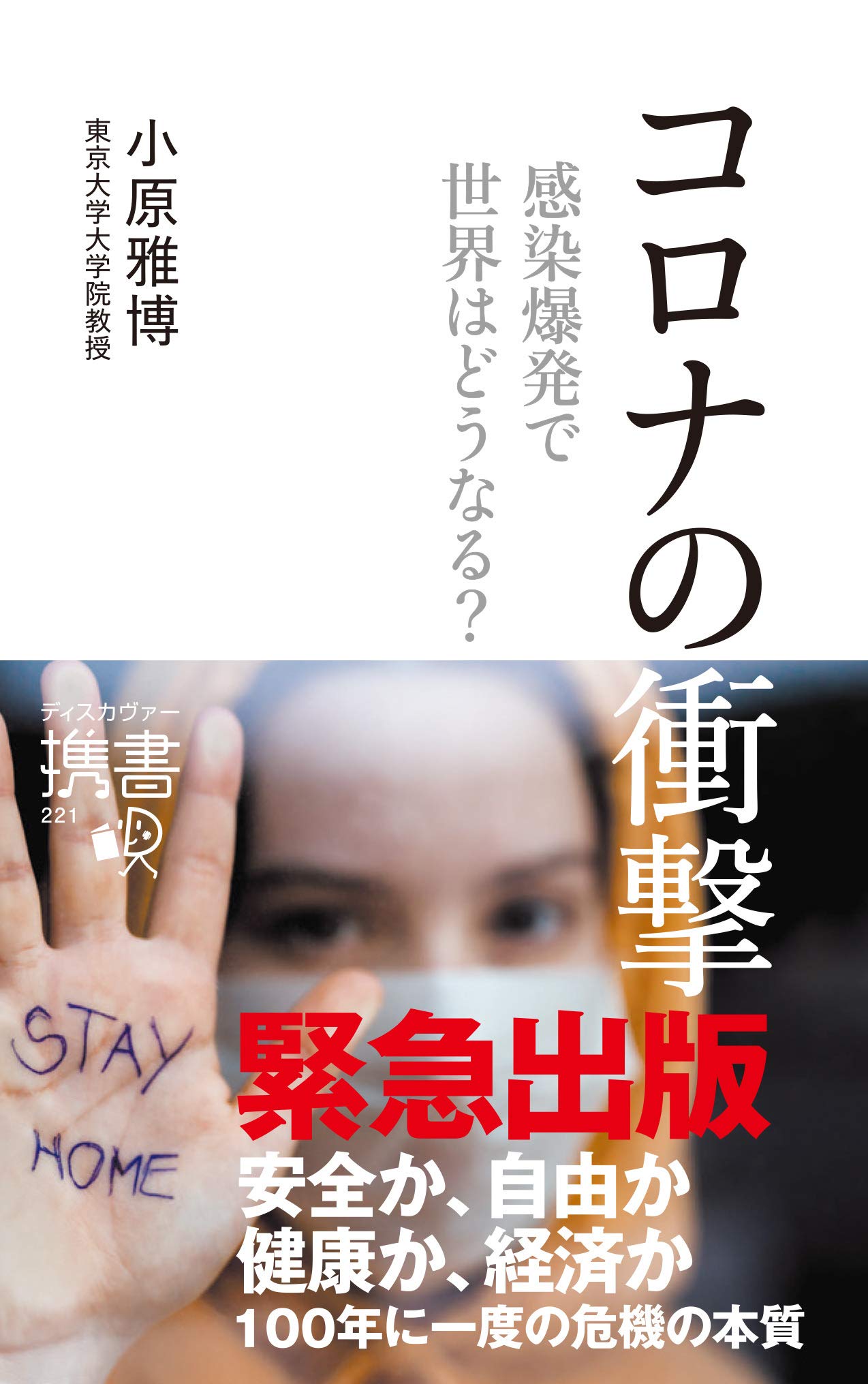
Title
Tōdai Hakunetsu Zemi (UTokyo Hakunetsu Seminar: An International Politics Course)
Size
344 pages
Language
Japanese
Released
April 27, 2019
ISBN
978-4-7993-2445-5
Published by
Discover 21, Inc.
Book Info
See Book Availability at Library
Japanese Page
I hold a seminar on diplomacy at the University of Tokyo, applying “critical thinking” to the international situation.
This book is an attempt to open up my seminar to society at large, and to make people think about important global issues from first principles. Let us refer to the book’s preface for an introduction to this way of thinking.
News of global crisis is reported seemingly every day, and can easily leave us in a state of sensory paralysis. Even if we are told that we must not allow this to become familiar, if told the same kind of thing countless times, anyone would end up getting used to it.
Even so, I would like you to think.
Consider Japan in the 1930s, at the start of the Shōwa period. The people living peacefully in Japan would never have thought that a few years later Japan would enter a reckless war with a great power like the United States. And they would surely not have imagined that the peaceful cityscapes they were used to seeing everyday would be transformed into desolate burnt-out fields.
It is said that one only understands the importance of peace when it is lost. In other words, we now take our current state of peace for granted, living our lives without thinking of how one day it might suddenly disappear.
But, are you willing to lose peace?
If your answer was “no,” then it is clear what you should do.
You must eliminate any “assumption” or “familiarity,” follow global movements on a daily basis, consider issues of peace and security, and discuss the form foreign relations should take with the people around you, and connect this to some form of concrete action, however small.
In my seminars, I explain international issues from a range of perspectives, pose questions to my students, and then we consider and discuss these issues together.
Because I emphasize critical thinking, we literally begin from first principles in our consideration of international politics.
Students who have advanced to the University of Tokyo and completed a liberal arts course may well say, “why are we going through this now,” but I think there is a trap in this of “why now” view.
In a Ministry of Foreign Affairs confidential paper Nihon Gaikō no Kago (Errors in Japanese Diplomacy) (a record made under the direction of Prime Minister Shigeru Yoshida to verify errors in foreign policy in acts and omissions in pre-war foreign policy), the first conclusion is that “all principles are important.” In the Analects of Confucius, it is written that, “... once the roots are established, the Way will grow therefrom.” If there are errors in the principles, then concerns about the finer details will inevitably end up in simple self-consolation (according to the same paper). In our present era, just as with pre-war Japan, it is necessary to discuss the principles. Thinking about international politics from first principles is precisely what I hope to put into practice with this book.
The following four characters appear in this book.
Ms. Kasumigaseki: aspires to work in the Ministry of Foreign Affairs. Her motto is to hold on to ones ideals while confronting reality.
Mr. Atsugi: aspires to work in the Ministry of Defense. He thinks that military power is stronger than anything else, and is extremely well-versed in global military matters.
Ms. Aoyama: aspires to work in the United Nations. She stresses the value of human rights and freedom, and has a strong desire for true world peace.
Mr. Kabuto: aspires to work in a global company. He thinks that money is the force that moves people and the world.
(Written by KOHARA Masahiro, Professor, Graduate Schools for Law and Politics / 2019)



 Find a book
Find a book



